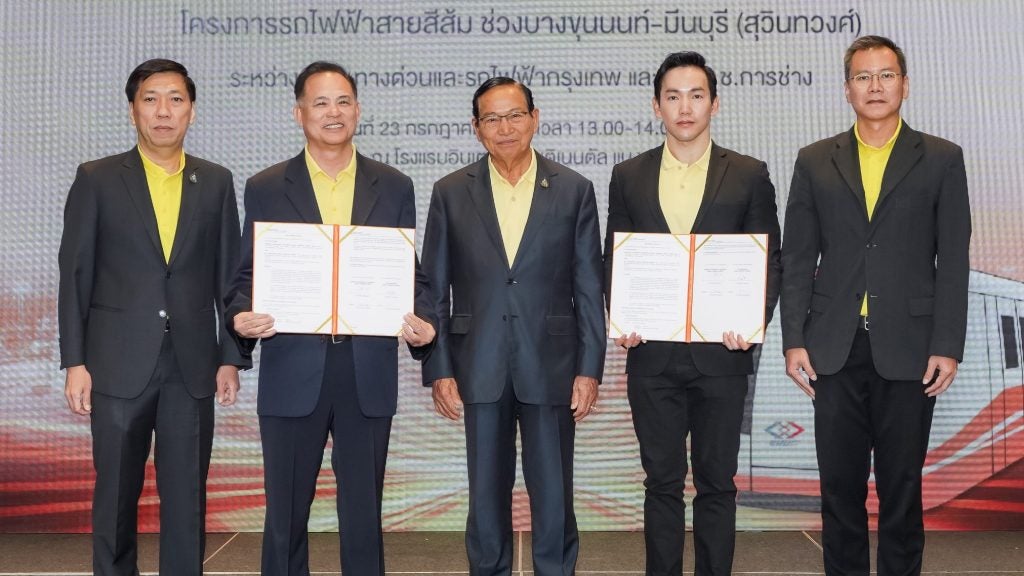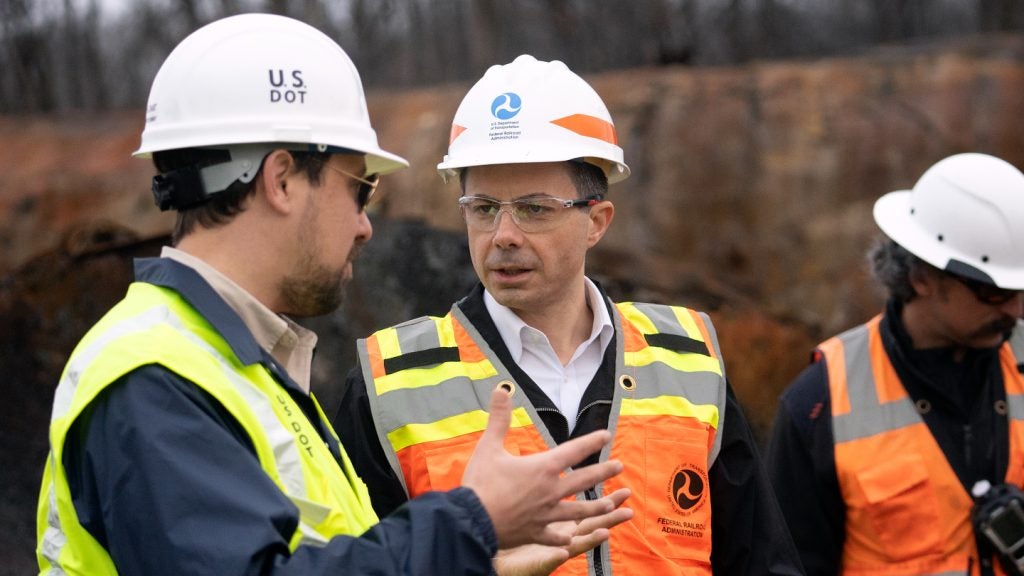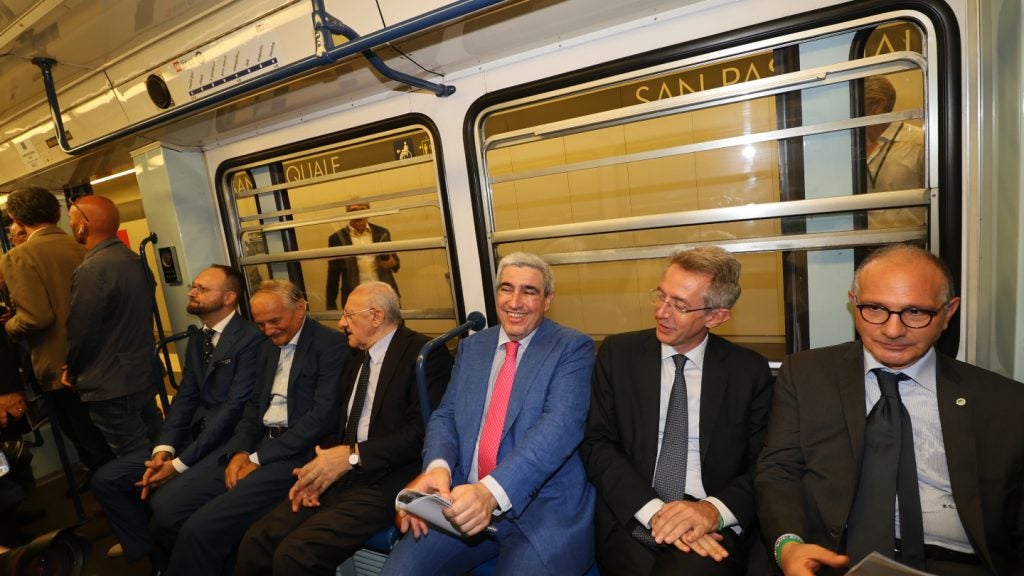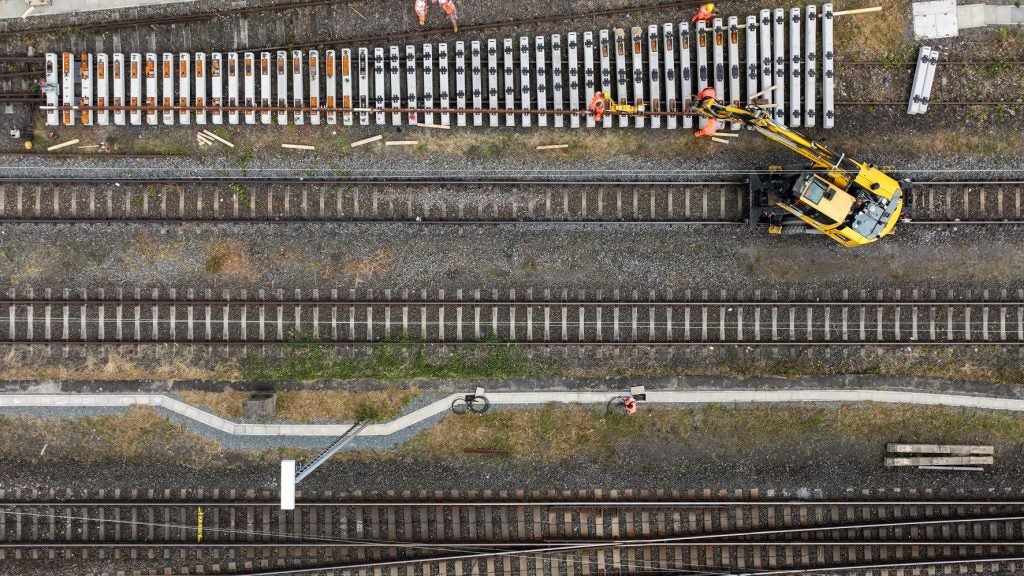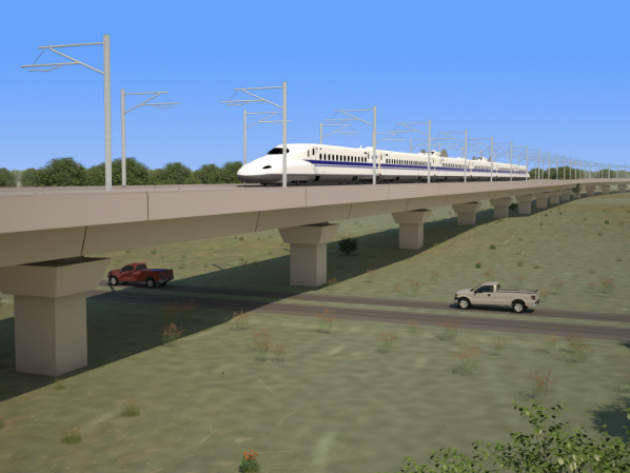

Throughout his presidential campaign Donald Trump voiced of his intent to rebuild America’s infrastructure.
Speaking in his characteristically inflammatory style at a Republican campaign event last March, some eight months before winning the US presidential election, Trump condemned his country’s rail network, labelling it as outdated.
“You go to China, they have trains that go 300mph. We have trains that go ‘chug, chug, chug’,” said Trump.
Four days after his inauguration, reports surfaced in The Kansas City Star of the incoming administration’s support for a bullet train in Texas, to run between Dallas and Houston. Washington has yet to provide official confirmation, at the time of writing, but in Texas the project is very much a font of contentious debate.
What we do know is that the high-speed rail line is the brainchild of private company Texas Central, or TCR. The Dallas to Houston track, designed on an elevated viaduct, would span approximately 240 miles, which the group says would reduce travel time between the cities to under 90 minutes – less than half the time of taking the journey by car.
How well do you really know your competitors?
Access the most comprehensive Company Profiles on the market, powered by GlobalData. Save hours of research. Gain competitive edge.

Thank you!
Your download email will arrive shortly
Not ready to buy yet? Download a free sample
We are confident about the unique quality of our Company Profiles. However, we want you to make the most beneficial decision for your business, so we offer a free sample that you can download by submitting the below form
By GlobalDataThe project is estimated to cost around $15bn and could be operational by 2024, according to previous statements by Texas Central. However, company vice-president of government relations, Travis Kelly, said no firm timeline could be given pending completion of an ongoing environmental impact study by federal regulators.
“The project timelines are dependent on many concurrent work streams, including those of various federal regulatory agencies,” said Kelly.
“When these processes are complete, the timelines will become more solidified. Until then, timelines represent the best estimates for milestones, many of which the company depends on others to achieve.”
More jobs and economic stimulus without cost to Texan taxpayers
High-speed rail could bring numerous advantages to Texas, claims Texas Central. The project, it says, is expected to generate more than $36bn in economic benefits over the next 25 years through a mix of direct spending, taxes, maintenance facilities, passenger stations and capital expenditures.
Also, Kelly believes “the project will create 10,000 direct jobs per year during construction. These are good jobs with competitive salaries.”
“Texas Central will employ up to 1,000 jobs permanently, when operational. The Texas high-speed train will create a brand new industry in Texas and the United States. It will prove the viability of high-speed train service in America, seeding domestic manufacturing industry for future deployments.”
According to the company, the project will be entirely privately funded, in line with its ‘market-led approach’. So far, Kelly claims the firm has received in excess of $155m, with the first $75m funded solely by Texas-based investors and families.
Commercial and financial planning, he adds, will be underwritten and critiqued by “some of the most seasoned and experienced equity and debt professionals in the world, while equity will derive from institutional investors and specialist infrastructure investment funds.
“As a private company, Texas Central is a taxpayer, not a tax-taker,” he adds. “Typically, passenger transportation systems, such as highways, toll roads and transit, do not pay taxes because they are government-owned and operated. For Texas Central, as a private company, most of its assets –tracks, maintenance facilities, stations – and capital expenditures are taxable.”
Not so says Kyle Workman, president of the campaign group Texans Against High Speed Rail (TAHSR), who accuses Texas Central of fudging its funding policy. Financial support for the project, he argues, will inevitably rest on the shoulders of taxpayers.
“Texas has no appetite to subsidise HSR, or even passenger rail,” says Workman. “Given the attributes of this project, it will fail privately and require huge government subsidies, as the vast majority of HSR worldwide does.”
“Culturally, this is type of transportation is not utilised by any significant percentage – less than 5% – of the population, making the likelihood of success even smaller. Since this is the inevitable conclusion, we believe the charade of ‘privately funded’ should be abandoned, in favour of a more honest discussion.”
Fighting for land: Corporate bullying
In addition to the claim of deceit, TAHSR has also accused Texas Central Railway of harassing landowners in order to obtain survey access, and of illegally exercising eminent domain – the right of a government or its agent to expropriate private property for public use, with payment of compensation – to purchase land below market cost.
According to Workman, Texas Central has already sued 40 landowners who refused to accept claims of eminent domain.
“TCR has used a company called Contract Land Staff to issue threatening letters to landowners regarding survey access, even threatening legal action,” he says.
“TCR’s goal through this process was to bully landowners for access to survey, a requirement for their environmental approvals, before anyone figured out their charade. It’s basically as case of, ‘Give me your lunch money or I’ll punch you in the mouth’.”
Texas Central, unsurprisingly, refutes these claims. As well as having a team of project engineers and designers on the ground to gauge the feelings of people in the ten counties along the proposed route, the company says it has a legitimate ‘land options’ programme in place, giving it the right to acquire a parcel of land and compensate the owner “at a future date at and agreed price”.
“The option offers are being made in select areas of alignments that are under review as part of the project’s environmental assessment,” says Kelly.
“To date, Texas Central has reached option agreements on about 30% of the parcels estimated to be needed for the stretch between North Texas and Houston. Negotiations have resulted in option agreements in all ten counties, including 50% of the parcels for the proposed route in Waller and Grimes counties.”
America First, but made in Japan
Another point of contention is Texas Central’s decision to draft in Central Japan Railway Company (JRC) as a technical advisor on the project. It plans to use JRC’s N700-I Bullet complete system – the international version of the Tokaido Shinkansen total system currently in operation between Tokyo and Osaka – which includes the passenger train, overhead catenary, tracks and signalling.
While Kelly is quick to stress that JRC “does not have financial interest in Texas Central and will not be the railway operator”, Workman points out that the decision is dramatically divergent from President Trump’s “America First” rhetoric, making his supposed support for the project counter-intuitive.
“As for Trump, he is a smart guy, this is a bad deal,” he says. “Here in the US we all know it, we have Amtrak – not to mention Make America Great Again…not Japan. I think the probability of them succeeding is very low.”
So the unknown elements of the project far outweigh the facts, as despite its pledge to seek backing exclusively from private coffers, in previous statements, Texas Central has spoken of the possibility of applying for federal loans.
Moreover, now several months into his presidency and Trump’s monumental infrastructure deal – a $1tn commitment to restore US railways, roads, bridges and airports – has still not been revealed.
It appears that there are more twists and turns ahead before Texans will find out if high-speed rail is coming their way, and even if it does, it is sure to be a bumpy ride.



